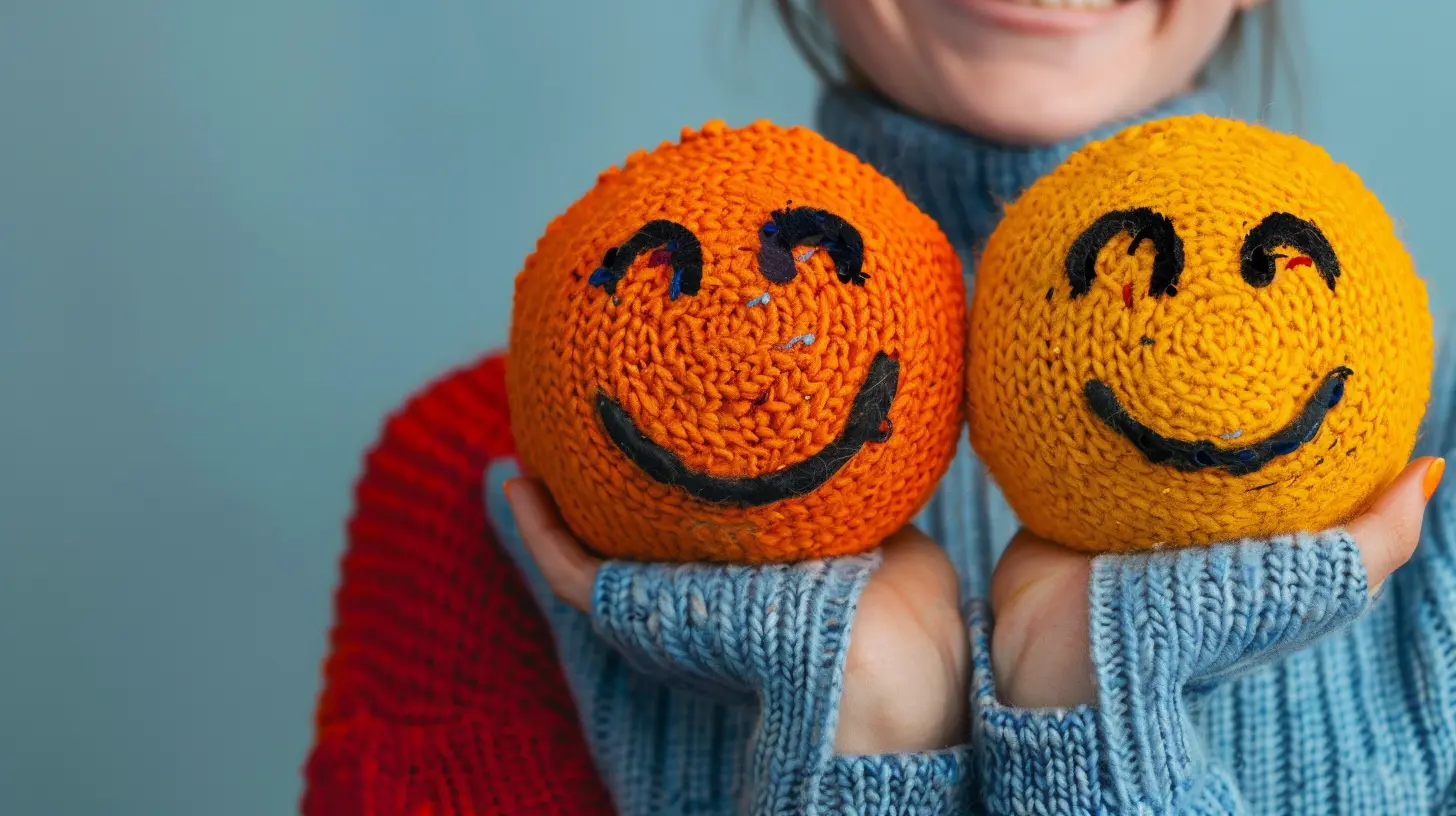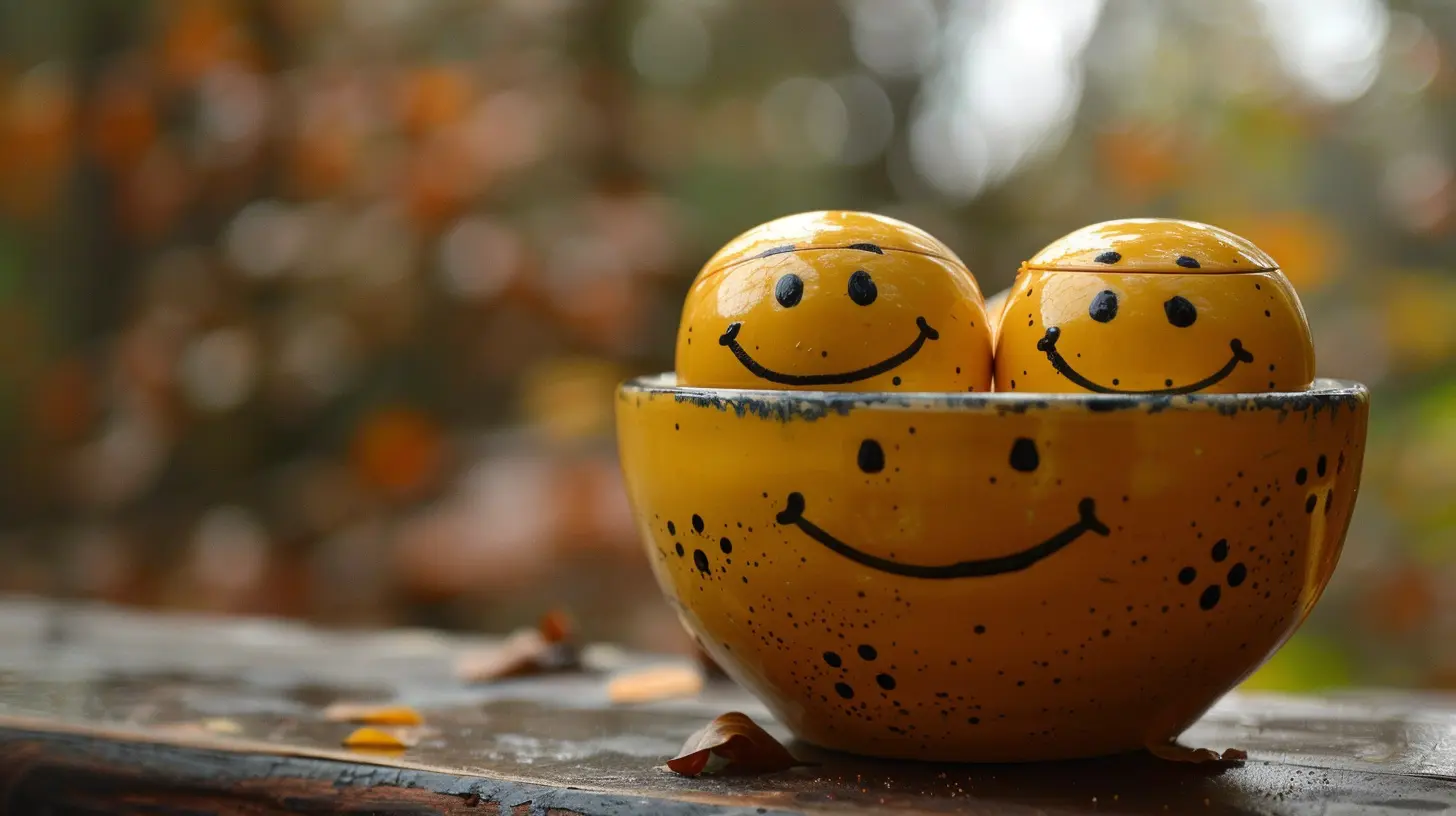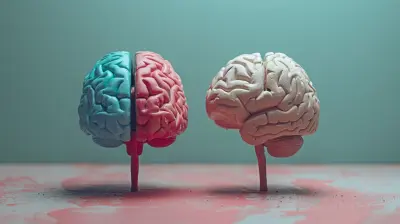The Role of Humor in Enhancing Emotional Well-Being
6 December 2024
Humor is an integral part of our daily lives—whether it’s a quick chuckle from a meme, a hearty laugh during a comedy show, or even a giggle at an inside joke with a friend. But did you know that humor does much more than just make us laugh? It can actually play a significant role in boosting our emotional well-being. That's right—those moments of laughter are doing more for your mental health than you might realize.
In this article, we'll dive deep into the fascinating connection between humor and emotional well-being. We'll explore why humor is such a powerful tool for improving your mood, reducing stress, and even strengthening social bonds. So grab a cup of coffee (or your favorite beverage), sit back, and let’s discover how humor can truly make life a little brighter.
What Is Emotional Well-Being?
Before we get into the nitty-gritty of humor’s role, it’s essential to understand what we mean by "emotional well-being." Emotional well-being refers to the ability to manage and express emotions in a healthy and balanced way. In simpler terms, it’s all about how you feel and cope with life’s ups and downs.When your emotional well-being is in good shape, you’re more likely to experience positive feelings like happiness, contentment, and satisfaction. On the flip side, poor emotional well-being can lead to feelings of stress, anxiety, and even depression.
But here’s the thing: maintaining emotional well-being isn't always easy, especially when life throws you curveballs. Thankfully, humor acts like a secret weapon—a little “life hack,” if you will—that can help you navigate through those emotional rollercoasters. Let’s explore how.
How Humor Affects the Brain: The Science Behind the Laughs
Ever wonder why you feel so good after a good laugh? Well, it’s not just in your head (pun intended); there’s actual science behind it.When you laugh, your brain releases a cocktail of feel-good chemicals like endorphins (our body’s natural painkillers), dopamine (the “reward” hormone), and serotonin (the happiness hormone). It’s like your brain’s way of giving you a little high-five for having a good time. These chemicals work together to improve your mood and reduce feelings of stress and anxiety.
But that’s not all. Laughter also activates the parasympathetic nervous system, often referred to as the “rest and digest” system. This helps your body relax, lowers blood pressure, and leaves you feeling more at ease.
In short, humor is like hitting the refresh button on your brain. It’s a quick reset that can make you feel better both mentally and physically. And who doesn’t love a good reset now and then?
The Stress-Busting Power of Humor
Let’s face it—life can be stressful. Whether it’s work deadlines, family responsibilities, or just the daily grind, stress is something we all deal with. But here’s where humor can step in as your personal stress-buster.1. Laughter as an Instant Stress Reliever
When you’re stressed, your body goes into “fight or flight” mode, releasing stress hormones like cortisol and adrenaline. While this response can be helpful in dangerous situations, it’s not so great when you’re just trying to get through a regular day.Humor, and laughter in particular, can actually lower cortisol levels in the body. Think of it like a natural antidote to stress. When you laugh, your muscles relax, tension melts away, and you immediately feel lighter. It’s like taking a mini-vacation from whatever’s stressing you out.
2. A Mental Shift: Humor Helps You Reframe Problems
Humor doesn’t just reduce stress physically—it can also change the way you think about stressful situations. Have you ever noticed how things often seem less serious after you’ve had a good laugh about them? That’s because humor helps you reframe problems, making them seem less daunting.When you find humor in a situation, it gives you a new perspective. Suddenly, that annoying email from your boss or that awkward conversation with a coworker doesn’t seem like the end of the world. Humor allows you to take a step back, see things more objectively, and handle problems with a clearer mind.
Humor as a Social Connector
Humor isn’t just a solo experience; it’s something that connects us with others. Think about it—how many friendships or relationships have started with a shared laugh? Humor is a universal language, and it plays a vital role in building and strengthening social bonds.1. Creating Social Bonds Through Shared Laughter
When you laugh with someone, you’re sharing a moment of joy. And these shared moments create a sense of connection and trust. In fact, studies have shown that people who laugh together are more likely to feel closer and more bonded.This is especially important when it comes to emotional well-being. Having strong social connections is a key factor in maintaining good mental health. Laughter helps break down social barriers, reduce awkwardness, and build stronger relationships, whether it’s with friends, family, or even coworkers.
2. Humor in Romantic Relationships
Did you know that humor can play a significant role in romantic relationships, too? Couples who laugh together often report higher relationship satisfaction. Humor can act as an emotional buffer during tough times, helping couples navigate challenges with a lighter heart.It’s like adding a bit of sunshine to a cloudy day. Even during disagreements, a well-timed joke or a playful comment can ease tension and remind you both that you’re in it together. In fact, humor has been called the "relationship glue" for a reason—it keeps things light, fun, and connected.
Humor as a Tool for Emotional Resilience
Resilience is the ability to bounce back from adversity, and let’s be honest—we all need a little more of that in our lives. The good news? Humor can be a powerful tool for building emotional resilience.1. Finding Humor in Difficult Situations
Life isn’t always a walk in the park. There are moments when things get tough, and it can feel nearly impossible to find anything to laugh about. But that’s when humor can be most beneficial.Humor doesn’t mean making light of serious situations or ignoring problems. Instead, it’s about finding a way to cope with difficulty through laughter. Dark humor or gallows humor, for example, is often used by people in high-stress professions (think doctors, paramedics, or even soldiers) as a way to process trauma and maintain emotional balance.
By allowing yourself to find humor, even in challenging times, you’re essentially saying, “I can handle this.” It’s a way of taking back control and not letting life’s hardships knock you down.
2. Humor and Optimism: Partners in Crime
Humor and optimism often go hand in hand. When you have a sense of humor, you’re more likely to approach life with a positive outlook. And this optimistic mindset can be a game-changer when it comes to emotional well-being.An optimistic person is more likely to see setbacks as temporary and solvable. Humor helps foster this mindset by encouraging a lighter, more flexible approach to life’s challenges. So next time you’re feeling down, try cracking a joke—it might just help you see the silver lining.
Practical Ways to Incorporate More Humor into Your Life
Okay, so now that we know how powerful humor can be, the big question is: how can you incorporate more of it into your daily life? Here are a few practical tips to help you get started:1. Surround Yourself with Humor
Whether it’s following funny accounts on social media, watching comedic shows, or reading humorous books, make a conscious effort to surround yourself with things that make you laugh.2. Laugh at Yourself
Don’t be afraid to laugh at yourself. Self-deprecating humor can be a great way to not take life too seriously. Plus, it shows that you’re comfortable in your own skin.3. Seek Out Funny People
Spend time with people who make you laugh. Humor is contagious, so the more you’re around funny folks, the more likely you are to experience moments of joy.4. Find Humor in Everyday Situations
Look for the funny side of things, even in mundane tasks. Whether it’s making a joke while doing the dishes or laughing at a silly mistake, finding humor in everyday life is a great way to boost your mood.Conclusion: Why Humor is Your Emotional Well-Being Sidekick
There’s no doubt about it—humor is a powerful tool for enhancing emotional well-being. From reducing stress and building social connections to fostering emotional resilience, humor offers a wide range of mental health benefits. And the best part? It’s free, available anytime, and accessible to everyone.So the next time you’re feeling overwhelmed, stressed, or just down in the dumps, remember that a little laughter might be all you need to turn things around. After all, life’s better when you're laughing, right?
all images in this post were generated using AI tools
Category:
Emotional Well BeingAuthor:

Eliana Burton
Discussion
rate this article
13 comments
Sabrina Barlow
Laughter truly heals!
February 1, 2025 at 3:28 PM

Eliana Burton
Absolutely! Laughter releases endorphins and fosters connection, making it a powerful tool for emotional healing.
Sheena McGonagle
Humor is a powerful tool for boosting emotional well-being. It not only helps relieve stress but also fosters connections with others. Embracing laughter can improve our perspectives on challenges, making life’s difficulties feel lighter and more manageable.
January 25, 2025 at 3:24 PM

Eliana Burton
Thank you for your insightful comment! I completely agree—humor truly transforms our outlook and strengthens our connections, making it an invaluable resource for emotional well-being.
Aurelia Kirkpatrick
Oh sure, because when life gets tough, nothing says "let's tackle those emotions" like a good dad joke! Who needs therapy when you can just laugh it off? Seriously though, can we just laugh our way through all our problems now?
January 22, 2025 at 5:26 AM

Eliana Burton
Absolutely! Humor can be a powerful tool for coping, but it's also important to address emotions seriously. A balance of laughter and genuine support can make all the difference.
Zephyrae Gomez
This article beautifully highlights the profound impact humor can have on our emotional well-being. It’s a reminder that laughter not only lightens our mood but also strengthens our connections with others. Thank you for sharing these insights—humor truly can be a powerful tool for healing and resilience in our lives.
January 17, 2025 at 4:19 PM

Eliana Burton
Thank you for your kind words! I'm glad you found the article meaningful—humor truly is a vital tool for enhancing our well-being and fostering connections.
Briar Duffy
This article insightfully highlights how humor can significantly boost emotional well-being. By fostering resilience and reducing stress, laughter serves as a powerful tool for coping with life's challenges. Incorporating humor into daily life not only lightens our mood but also strengthens social connections and improves overall mental health.
January 14, 2025 at 3:25 AM

Eliana Burton
Thank you for your thoughtful comment! I'm glad you found the article insightful. Humor truly is a potent tool for enhancing emotional well-being and fostering connections.
Misty McGuire
Great insights on humor's impact on emotional well-being! It's fascinating how laughter can serve as a coping mechanism and foster connections. Looking forward to exploring more practical applications in daily life!
January 10, 2025 at 4:06 PM

Eliana Burton
Thank you! I'm glad you found the insights valuable. Exploring practical applications of humor in daily life can truly enhance our emotional well-being. Stay tuned for more!
Faye Beck
Humor serves as a vital tool in promoting emotional well-being by fostering resilience and providing stress relief. It facilitates social connections, enhances perspective, and mitigates negative feelings. Incorporating humor into daily life can lead to improved mental health by encouraging laughter, which has been shown to reduce anxiety and enhance overall happiness.
January 1, 2025 at 4:21 AM

Eliana Burton
Thank you for highlighting the importance of humor! Indeed, its ability to foster connections and alleviate stress significantly contributes to emotional well-being. Laughter truly is a powerful medicine.
Tamsin McGuffey
This article insightfully highlights the profound impact of humor on emotional well-being, emphasizing its potential as a valuable tool for enhancing mental health. Well done!
December 26, 2024 at 4:44 AM

Eliana Burton
Thank you for your kind words! I'm glad you found the insights on humor's impact on emotional well-being valuable.
Azurael Mullen
This article beautifully highlights the profound impact humor can have on emotional well-being. By emphasizing the importance of laughter in fostering resilience and connection, it serves as a timely reminder to incorporate humor into our daily lives for improved mental health and overall happiness.
December 19, 2024 at 4:52 AM

Eliana Burton
Thank you! I'm glad you found the article impactful. Humor truly is a powerful tool for enhancing our emotional well-being.
Amos Ramirez
Humor plays a vital role in enhancing emotional well-being by promoting resilience, reducing stress, and fostering social connections. It encourages a positive outlook and provides a coping mechanism for life's challenges, ultimately contributing to better mental health and stronger interpersonal relationships.
December 15, 2024 at 4:49 AM

Eliana Burton
Thank you for highlighting the crucial role humor plays in emotional well-being! It's indeed a powerful tool for resilience and connection.
Pamela McCabe
Humor transcends sorrow, illuminating our shared humanity and fostering resilience in adversity.
December 12, 2024 at 4:41 AM

Eliana Burton
Thank you! Humor indeed serves as a powerful tool for connection and healing, helping us navigate life's challenges together.
Willow Webster
Who knew laughter could be the best therapy? Forget the couch—just hand me a rubber chicken and a dad joke, and I’ll be on my way to emotional bliss!
December 8, 2024 at 5:27 PM

Eliana Burton
Absolutely! Humor is a powerful tool for boosting emotional well-being. A good laugh can lighten our burdens and bring joy, proving that sometimes the simplest things can have the greatest impact!
Drift McClain
This article piques my curiosity! It's fascinating how humor might serve as a tool for emotional resilience. I'm eager to explore the deeper psychological mechanisms behind laughter and its impact on our well-being.
December 7, 2024 at 3:39 AM

Eliana Burton
I'm glad you found the article intriguing! Humor truly plays a vital role in emotional resilience, and its psychological benefits are worth exploring further. Thank you for your interest!
MORE POSTS

The Connection Between Body Image and Eating Disorders

Grieving in the Digital Age: Social Media and Loss

The Role of Imagination in Cognitive Development

Dopamine and Decision Making: The Brain's Reward System Explained

The Impact of Stress on Memory and Concentration

How Neurotransmitters Influence Sleep-Wake Cycles

Grief and the Holidays: How to Handle Celebrations After Loss

How Meditation Alters Brain Structure and Function

Living with Anxiety: Coping Mechanisms that Work